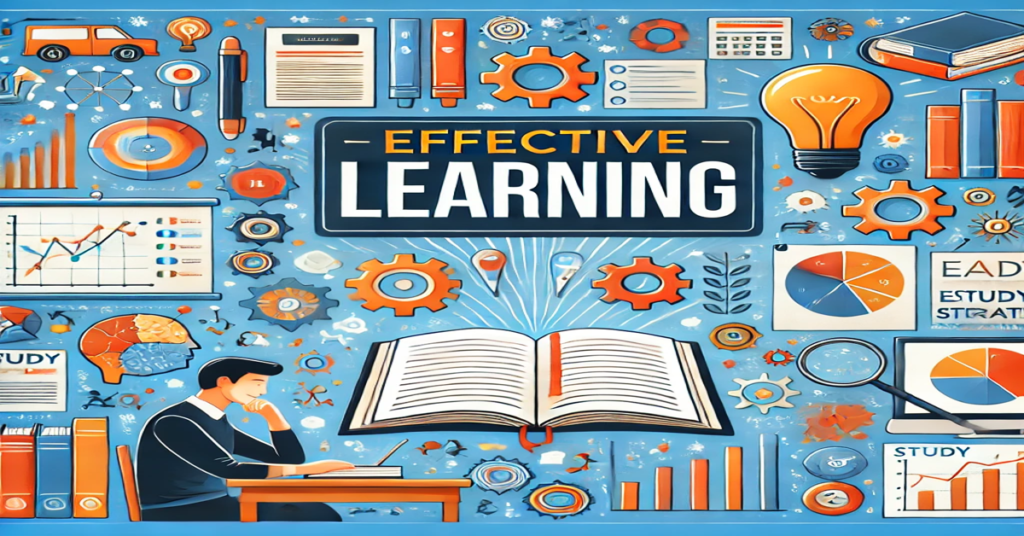In an era where information is abundant and learning opportunities are plentiful, understanding how to study effectively has never been more critical. Thestudypoints in an invaluable resource designed to enhance learning outcomes and provide students, professionals, and lifelong learners with the tools they need to succeed academically and personally. This article will delve into various aspects of effective study techniques, the importance of study points, and how they can transform your approach to learning.
What Are Study Points?
Study points are concise pieces of information or tips that guide individuals on how to study effectively. They encompass various strategies, techniques, and methodologies that cater to different learning styles and objectives. These points can range from general advice on time management and organizational skills to specific study techniques tailored for particular subjects or tasks.
Importance of Study Points
- Focus and Direction: Study points help learners focus on the essential aspects of their study materials, providing direction and clarity in their approach.
- Efficiency: By identifying key concepts and strategies, study points enable learners to use their time more efficiently, maximizing retention and understanding.
- Customization: Different learners have unique needs. Study points can be tailored to fit individual learning styles, preferences, and goals.
- Motivation: Having clear and actionable study points can motivate learners to engage with their materials actively and achieve their objectives.
Effective Study Techniques
1. Active Learning
Active learning involves engaging with the material through discussions, problem-solving, case studies, and hands-on experiences. This approach encourages critical thinking and better retention.
Techniques for Active Learning:
- Group Discussions: Collaborate with peers to discuss concepts and share insights.
- Practice Questions: Solve practice problems related to the subject matter.
- Teaching Others: Explain the material to someone else, which reinforces your understanding.
2. Time Management
Effective time management is crucial for successful studying. It involves prioritizing tasks, setting deadlines, and creating a structured study schedule thestudypoints in.
Strategies for Time Management:
- Pomodoro Technique: Study for 25 minutes, then take a 5-minute break. Repeat this cycle to maintain focus and avoid burnout.
- Set Specific Goals: Define what you want to achieve in each study session, such as completing a chapter or understanding a specific concept.
- Prioritize Tasks: Identify which tasks are most important and tackle those first thestudypoints in.
3. Note-Taking Strategies
Taking notes is an essential part of the learning process. Effective note-taking helps reinforce what you’ve learned and provides a useful reference for future study.
Popular Note-Taking Methods:
- Cornell Method: Divide your paper into three sections: cues, notes, and summary. This method encourages review and self-testing.
- Mind Mapping: Create visual representations of information to see the connections between concepts.
- Outlining: Organize information hierarchically, which helps structure your thoughts and makes reviewing easier.
4. Study Environment
Your study environment significantly affects your ability to concentrate and absorb information. A conducive study environment minimizes distractions and promotes focus thestudypoints in.
Tips for Creating an Ideal Study Environment:
- Choose the Right Location: Find a quiet, comfortable place to study, whether at home, in a library, or a coffee shop.
- Minimize Distractions: Silence your phone, close unnecessary tabs on your computer, and inform others that you need uninterrupted time.
- Organize Your Space: Keep your study area tidy and organized to foster a productive atmosphere.
5. Utilizing Technology
Technology can enhance your study experience by providing various tools and resources. From digital note-taking apps to online courses, technology offers numerous ways to learn effectively.
Recommended Tools:
- Evernote or OneNote: Great for organizing notes and ideas.
- Quizlet: Useful for creating flashcards and practicing vocabulary or concepts.
- Khan Academy: Offers free online courses and resources for a wide range of subjects.
6. Practice and Revision
Revising and practicing what you’ve learned is crucial for long-term retention. Regular review sessions help reinforce concepts and identify areas where you need further thestudypoints in.
Revision Techniques:
- Spaced Repetition: Review material at spaced intervals to improve retention over time.
- Self-Testing: Use practice exams or flashcards to test your knowledge and identify gaps in understanding.
- Summarization: Write summaries of key concepts to consolidate your understanding and make the material more digestible.
The Role of Study Points in Different Learning Contexts
1. Academic Learning
In academic settings, study points are essential for navigating complex subjects and preparing for exams. Students can benefit from tailored thestudypoints in that address specific topics, exam formats, and assessment criteria.
Example Study Points for Academic Learning:
- Understand the Exam Format: Familiarize yourself with the types of questions and the marking scheme.
- Use Past Papers: Practice with previous exam questions to understand what is expected and improve your time management during exams.
2. Professional Development
In professional settings, continuous learning is vital for career advancement. Study points can guide professionals in acquiring new skills, staying updated with industry trends, and preparing for certifications.
Example Study Points for Professional Development:
- Set Career Goals: Identify skills needed for career advancement and create a plan to acquire them.
- Network with Professionals: Engage with others in your field to learn from their experiences and gain insights into industry best practices.
3. Lifelong Learning
Lifelong learning is essential in a rapidly changing world. Study points can help individuals adapt to new knowledge and skills throughout their lives.
Example Study Points for Lifelong Learning:
- Embrace Online Learning: Take advantage of online courses and webinars to learn at your own pace.
- Stay Curious: Cultivate a mindset of curiosity and exploration to continuously seek new knowledge and experiences.
Conclusion
Thestudypoints inrepresent a vital resource in the journey of learning, offering strategies and techniques that enhance understanding and retention. By implementing effective study techniques, managing time wisely, and utilizing technology, learners can maximize their potential and achieve their academic and professional goals. The landscape of education continues to evolve, and with resources like study points, individuals can navigate their learning journeys with confidence and success.
FAQs
- What are study points?
- Study points are concise tips and strategies that guide individuals on how to study effectively.
- How can I improve my study habits?
- You can improve your study habits by implementing active learning techniques, managing your time efficiently, and creating a conducive study environment.
- What is the best way to take notes?
- Effective note-taking methods include the Cornell Method, mind mapping, and outlining, each tailored to different learning preferences.
- How can technology aid my studying?
- Technology can enhance studying through apps for note-taking, online resources for learning, and platforms for practice and revision.
- Why is revision important?
- Regular revision reinforces learning, helps with long-term retention, and identifies areas where further study is needed.
- What role do study points play in professional development?
- Study points provide guidance for acquiring new skills, staying current in your field, and preparing for professional certifications.







